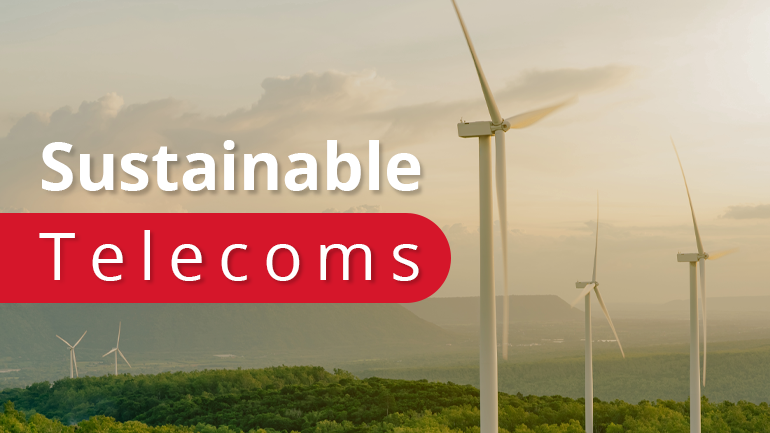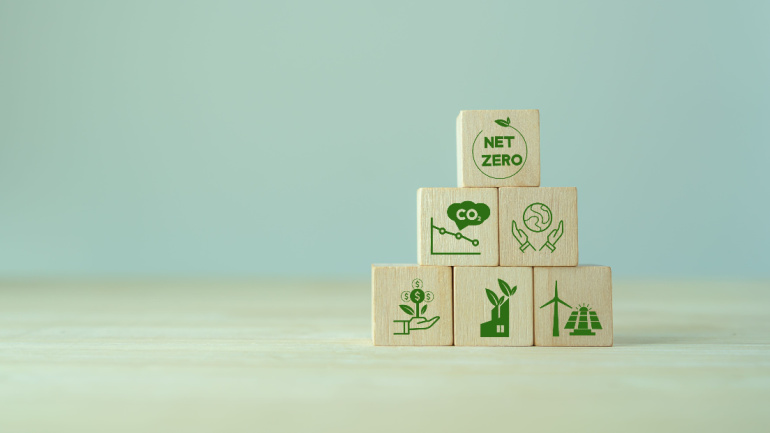Equinix is investing USD $260 million to develop SG6, a sustainable data center in Singapore, designed for AI and compute-intensive tasks. Featuring renewable energy, liquid cooling, and rainwater harvesting, SG6 aligns with Singapore’s Green Plan 2030.
In developed markets, copper telecom networks are rapidly being replaced by more efficient fiber optic cables. Despite this shift, the value of copper is surging in other sectors, particularly in electric vehicles and renewable energy. The metal’s worth has soared over 50% from pre-pandemic levels due to high demand and lower mining outputs, with forecasts suggesting a further 50% increase in demand by 2040.
The SubOptic Foundation’s latest report shines light on the sustainable potential of subsea telecommunications cables, often underrepresented in sustainability discussions. With a detailed coverage of sustainable practices, the report explores CO2 emissions tracking, renewable energy utilization, recycling strategies and more.
Ooredoo drives Qatar National Vision 2030 with a widespread fiber rollout, covering 99.9% of households, maintaining high service levels and introducing innovative technologies. Vodafone UK advocates for the implementation of 5G SA technology, citing its transformative impact on industries, such as renewable energy and agriculture. CableLabs has made strides in deploying 10G network in 2023, advancing DOCSIS 4.0 technology, issuing CPON architecture specifications, and accelerating FTTP adoption. Microsoft’s new Copilot key represents a groundbreaking addition to Windows keyboards, integrating AI seamlessly and signaling a significant shift after three decades.
In a groundbreaking shift, artificial intelligence (AI) is revolutionizing material discovery, unlocking new possibilities in renewable energy, semiconductors, and pharmaceuticals. GlobalData, a prominent data and analytics firm, asserts that AI is spearheading a transformative era in research and development, dismantling traditional barriers and fueling unprecedented advancements in material science.
Switching to a cloud-based VoIP system has the potential to cut CO2 emissions from telephony equivalent to removing 22 million cars from the road. In an era prioritizing sustainability, traditional landlines contribute to significant carbon footprints and electronic waste. VoIP, utilizing the internet’s power, eliminates physical infrastructure, reduces electronic waste, and operates efficiently. Beyond resource conservation, VoIP’s energy efficiency, support for remote work, and future innovations, including AI optimization and renewable energy sources, position it as a sustainable solution. Join the movement for a cleaner world with every VoIP-powered conversation—a pledge to the planet.
Taking bold steps towards combatting climate change, Japan’s leading telecom firm, NTT DoCoMo, unveils ambitious initiatives looking to drastically cut its scope 3 emissions. These indirect emissions derive largely from the supply chain, making up approximately four-fifths of the company’s total greenhouse gas output. Taking the bull by the horns, DoCoMo is charting an eco-conscious path, pledging to fully utilize renewable energy sources and implement energy-saving measures across its network. With an eye on the future, the telecom titan plans to transform its supply chain to become environmentally friendly by 2040, all while leveraging technology to help suppliers and customers visualize their carbon footprint. As the telecommunications industry continues to battle climate change, stay tuned for further updates.
GXC, a Texas-based private 4G/5G provider, is set to be acquired by California’s Motive Companies. This strategic move enhances GXC’s advanced 5G services for industrial applications, leveraging Motive’s expertise.
Microsoft’s €4.3 billion investment in Italy is set to revolutionize cloud and AI infrastructure. This ambitious initiative aims to elevate Italy’s digital landscape, offering VoIP solutions that enhance connectivity and communication. By focusing on digital skills, Microsoft intends to transform Italy into a leading hub for digital innovation in the Mediterranean region.
Equinix has unveiled a staggering $15 billion initiative in collaboration with Singapore’s GIC and Canada’s Pension Plan Investment Board to enhance its U.S.-based xScale data centers. This venture is pivotal for supporting AI workloads.













